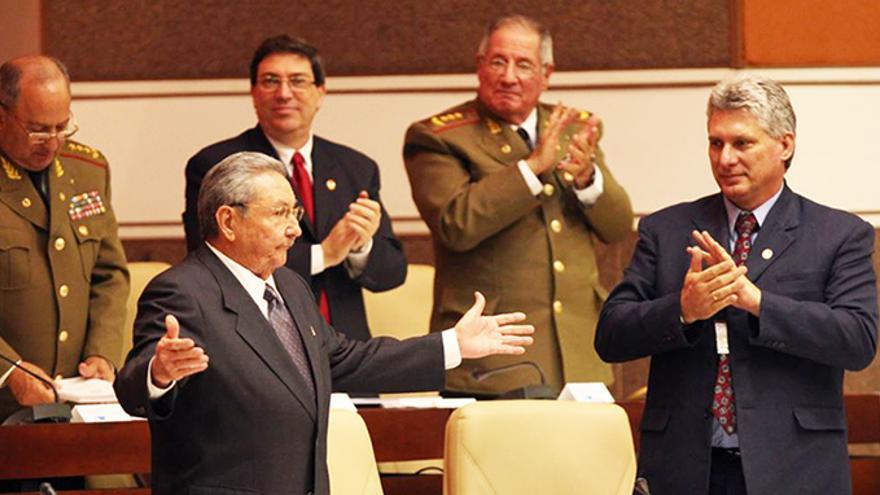
![]() EFE (via 14ymedio), Havna, 5 January 2018 — The process to designate the candidates for the deputy positions that will make up the new National Assembly of People’s Power in Cuba, as well as the provincial Assemblies, began this Friday with consultations to the 12,515 municipal delegates selected in the elections on November 26.
EFE (via 14ymedio), Havna, 5 January 2018 — The process to designate the candidates for the deputy positions that will make up the new National Assembly of People’s Power in Cuba, as well as the provincial Assemblies, began this Friday with consultations to the 12,515 municipal delegates selected in the elections on November 26.
The new Parliament will be the one that votes in April on the proposal of a new president to replace the current president, Raul Castro, 86, who will retire after two terms. However, before this happens provincial and general elections must be held, the dates for which have not yet been announced.
Between this Friday and January 14, the municipal delegates will be consulted on the proposals for “pre-candidates” to provincial delegate and deputy seats for their respective territories; some lists have been prepared by the provincial and national candidates commissions, according to a note from the state-owned Cuban News Agency (ACN).
There are 12,640 potential candidates on the lists who were, in turn, selected at meetings of the country’s mass organizations, all of whom are pro-government.
The Cuban Electoral Law establishes that up to 50% of the national deputies can be elected from among the municipal and provincial delegates, while the rest are proposed by social organizations.
“Personalities, outstanding workers, housewives, peasants, leaders and members of the armed institutions” are some of the profiles that these organizations can choose, says the ACN.
Once the regional and general elections are held, the new National Assembly will be formed, which in turn will propose and vote for the main government positions of the country, including the president and vice-president.
The start date of the new legislature was scheduled for February 24, but last December the Assembly, in response to a proposal from the State Council, approved extending the current mandate by two months due to the ravages caused in September by Hurricane Irma, which resulted in 13 billion dollars in loses in Cuba.
The new Parliament will be formed on April 19 and will be in charge of electing the country’s new president, an appointment that is the source of great anticipation because for the first time in six decades the ruler of the island will not carry the surname Castro.
“When the National Assembly is constituted I will have finished my second and last term at the head of the State and the Government, and Cuba will have a new president,” said Raul Castro before the National Assembly last December, in the year’s last plenary session.
Although there has been no official confirmation, it is expected that it will be the current first vice-president, Miguel Díaz-Canel, 57, who will relieve the younger Castro and occupy the presidency.
______________________________
The 14ymedio team is committed to serious journalism that reflects the reality of deep Cuba. Thank you for joining us on this long road. We invite you to continue supporting us, but this time by becoming a member of 14ymedio. Together we can continue to transform journalism in Cuba.
